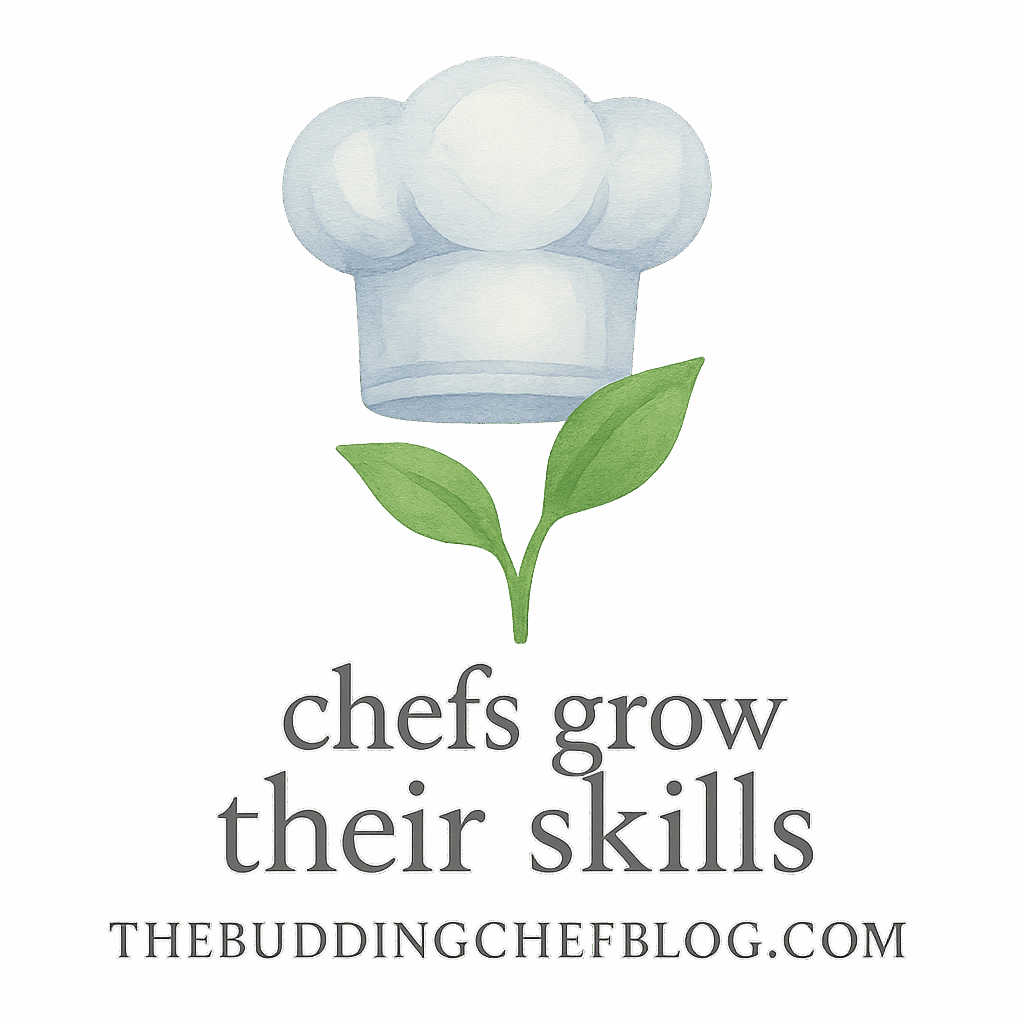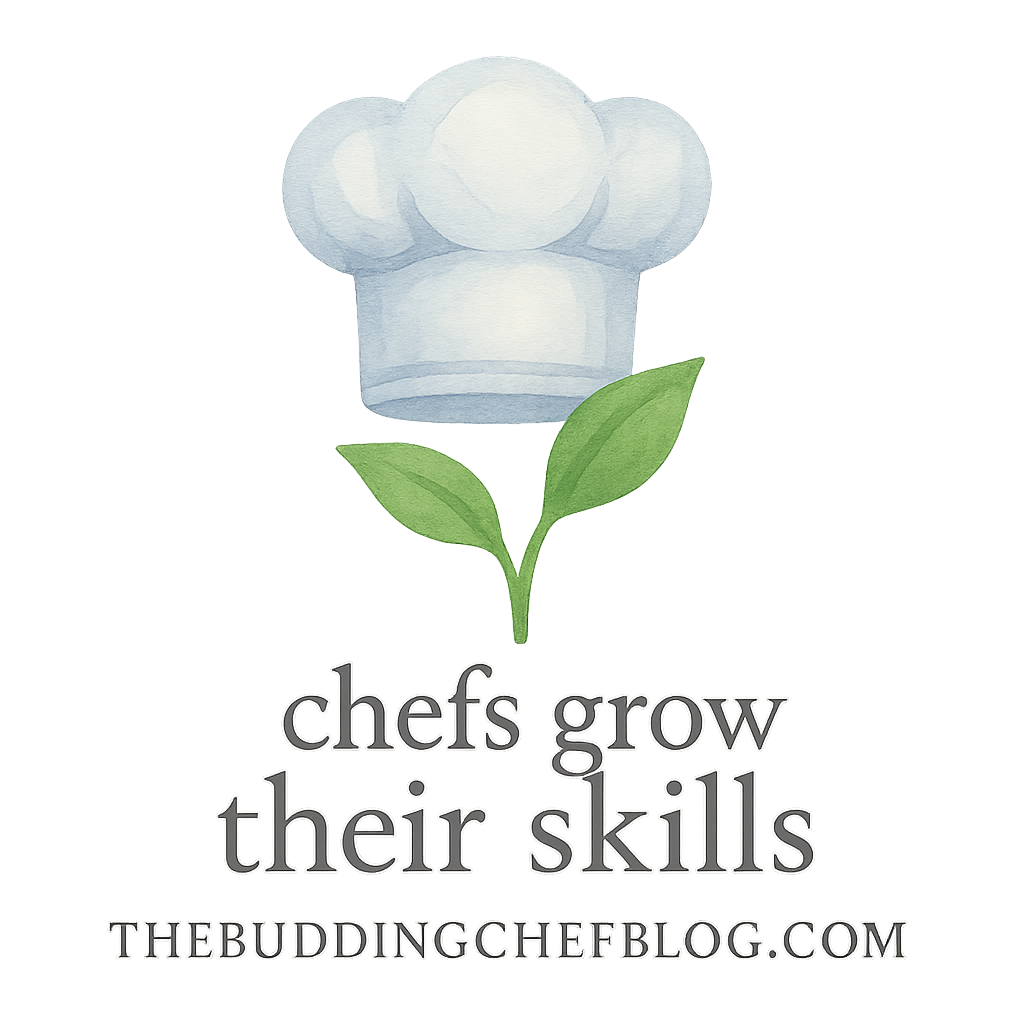So, you’ve just stepped into the world of cooking and you’re eager to improve, but every time you whip up a dish, you’re not sure if you’re moving forward or just making messes. That’s where journaling swoops in like a culinary sidekick. This article is all about 5 journaling ideas that help beginner chefs track progress—yes, that’s our focus keyword, and by the end of this post, you’ll be a journaling ninja in the kitchen.
Why Journaling Matters for Beginner Chefs
When you’re learning to cook, it’s not just about following recipes—it’s about building habits, learning from mistakes, and understanding your preferences. A journal gives you space to process all that.
It helps you:
- Remember what went well (and what didn’t).
- Track your improvement over time.
- Build confidence as you grow.
The truth? Most beginner chefs overlook the power of reflection. But if you’re reading this, you’re already ahead of the game.
Explore more tips on professional growth to strengthen your chef mindset.
How to Start a Chef’s Journal
Choosing the Right Journal Format
You don’t need anything fancy. Start with:
- A physical notebook (great for analog lovers).
- A digital note app (Google Docs, Notion, Evernote).
- A dedicated cooking journal from Amazon or Etsy.
If you’re looking to complement your journaling with some handy tools, don’t forget to check our guide to kitchen tools & equipment.
Frequency: Daily vs Weekly Entries
There’s no “right” way. Some beginner chefs write after every cooking session, while others reflect weekly. Go with what’s realistic for your lifestyle—but consistency is key.
Now, let’s dive into the core: 5 journaling ideas that’ll help you thrive in the kitchen.
5 Journaling Ideas That Help Beginner Chefs Track Progress
1. Recipe Reflection Logs
Writing about your cooking experience helps reinforce what you’ve learned.
What to Write After Cooking
Jot down:
- What recipe you made
- Where you got it from (Pinterest? Grandma?)
- What went well
- What could be improved
- What you’d do differently next time
Use the recipe practice page for inspiration and structure.
How This Boosts Your Cooking Skills
You’ll start recognizing trends. Maybe you’re always overcooking chicken, or your sauces come out too salty. Once it’s written down, it’s easier to fix.
Tag this section with your learning goals from our cooking skills hub.
2. Ingredient Discovery Pages
Beginner chefs often get stuck using the same handful of ingredients. Let’s change that.
Understanding Ingredients in Depth
Dedicate journal pages to new ingredients you try. Document:
- Name and description
- Taste profile
- Cooking methods
- Best pairings
Expand your knowledge using our ingredient knowledge resources.
Where to Learn Ingredient Info
Hit up:
- The Budding Chef Blog’s ingredient tag
- Cookbooks or YouTube chefs
- Local markets (ask questions!)
Add flair to your food without busting your budget—see our affordable ingredient ideas.
3. Kitchen Mistakes and What You Learned
You’re going to mess up. That’s part of the game. The key is not just to laugh it off—but to learn from it.
Embracing Failures as Lessons
Did your rice turn to mush? Oven too hot? Garlic burn?
Write it all down.
Check out our tag on mistakes for stories you’ll relate to.
Spotting Patterns and Avoiding Repeats
After a few entries, you’ll start spotting trends. Are you skipping steps when rushing? Using the wrong cookware? That’s how journaling makes you smarter in the kitchen.
Speaking of cookware—are you using the right stuff? Visit our cookware tag for tips.

4. Weekly Cooking Challenges Recap
Push yourself. Each week, set a tiny cooking challenge. It could be:
- Try a new cuisine
- Cook without a recipe
- Bake a dessert from scratch
Setting Up Your Personal Challenges
Start with what excites you. Want to cook Thai food? Or finally get that soufflé to rise? Write your goal at the top of the week.
Check out cooking challenges for fun ideas.
Reviewing Your Growth and Struggles
At the end of the week, reflect on how it went:
- Did you succeed?
- What frustrated you?
- Would you try again?
Tracking these will build your confidence over time.
5. Tools & Equipment Feedback
This one’s underrated. Your gear plays a big role in how smoothly your cooking sessions go.
Rating Your Kitchen Gear Performance
After using a new tool (e.g., peeler, pan, mixer), write down:
- Was it helpful?
- Easy to use?
- Worth the price?
Find reviews and beginner tips in our kitchen tools section.
Tracking Affordable Must-Haves
A chef on a budget still deserves good tools. Use this section to list:
- Gear that works great on a tight budget
- What you want to upgrade later
- Tools you regret buying
For more on cooking smart without breaking the bank, head to our budget tag.
Turning Journal Entries Into Real Growth
Spotting Strengths and Weaknesses
Review your past entries weekly or monthly. Highlight what you’re nailing and what you need to revisit.
Are your strengths aligned with your goals? Your journal will tell you.
Building Kitchen Confidence Over Time
The best part of journaling? You’ll look back in 3 months and think, “Wow, I couldn’t even poach an egg back then.”
That’s the kind of momentum that keeps chefs improving.
For motivation, visit our success tag and improvementchefs category.
Make Journaling a Habit That Sticks
Time-Saving Tips for Busy Beginners
- Use bullet points instead of full paragraphs.
- Keep your journal near the stove or in the kitchen drawer.
- Set a timer: just 5 minutes of writing is enough.
Browse our essentialschefs tag for habit-building tools and strategies.
Combining Journaling With Meal Planning
Try writing your journal alongside your meal planning notes:
- What meals are you planning?
- What skill do you want to practice this week?
- What ingredients will you explore?
Use our guide to meal planning for a smoother process.
Internal Resources to Support Your Journey
We’ve sprinkled some links above, but here’s your one-stop support menu:
- The Budding Chef Blog homepage
- Basic Cooking Techniques
- Ingredient Knowledge
- Kitchen Tools & Equipment
- Professional Growth
- Recipe Practice
These pages are filled with insights tailored to beginner chefs who want to build real skills.
Conclusion
Journaling isn’t just for poets or overthinkers—it’s for passionate beginner chefs who want to grow, track their wins, and fix their flops. These 5 journaling ideas that help beginner chefs track progress aren’t just “nice to try”—they’re your personal blueprint to becoming confident in the kitchen. So go ahead—grab a notebook, write down your last cooking adventure, and start building the culinary version of your highlight reel.
Frequently Asked Questions (FAQs)
1. What should I write in a cooking journal as a beginner?
Start with what you cooked, how it turned out, what you learned, and what you’d do differently next time.
2. How often should I journal about my cooking?
At least once a week is ideal, but daily entries after cooking can accelerate your learning.
3. Can I use a cooking journal to plan meals?
Absolutely! Journaling and meal planning go hand-in-hand. It keeps you organized and purposeful.
4. What if I make a lot of mistakes in the kitchen?
Great! Write them down. Every mistake is a lesson. Reflect, learn, and laugh about it later.
5. Do I need special tools to start journaling?
Nope. A notebook or a digital app is enough. Just be consistent.
6. How do I keep my journaling habit going?
Keep it short, fun, and personal. Don’t make it a chore—make it your post-cook ritual.
7. Where can I find more beginner-friendly cooking resources?
Explore The Budding Chef Blog and especially our beginnerchefs tag for curated tips, tools, and growth paths.


